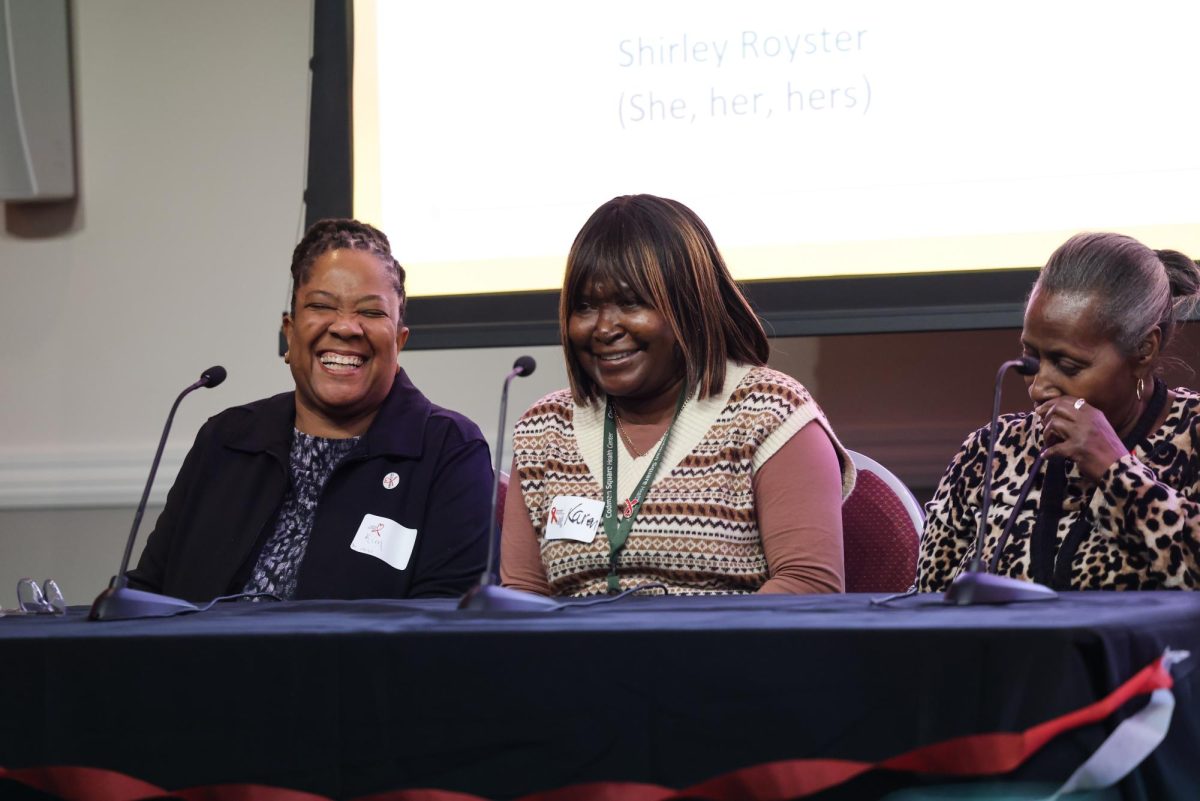To commemorate National Black HIV/AIDS Awareness Day, Suffolk University Center for Student Diversity and Inclusion hosted a panel in collaboration with the Black Student Union and local organizers from the City of Boston’s Ryan White HIV/AIDS Services Planning Council that sought to address the disparities in healthcare often faced by people of color Feb. 7.
The Ryan White HIV/AIDS Program works to provide support to underprivileged people living with HIV in Massachusetts and southern New Hampshire. The services it provides range from medical care to mental health support.
The discussion, titled “Anti-HIV Stigma Campaign; A Black Woman’s Perspective,” presented multiple speakers working within the community to foster awareness surrounding the issue of HIV and AIDS.
BSU and CSDI partnered with the city with hopes that this event can help foster conversations regarding the impact the virus has had on the Greater Boston area, specifically the experiences of women of color who have been stigmatized in search of treatment.
Bea Patiño, director of CSDI, discussed what exactly the organizers set out to achieve through this event.
“The reason we have these conferences is because stigma still exists. But at that same time, it’s a celebration of all of the progress we’ve made,” said Patiño.
Hana Wallen, a Suffolk senior and Ryan White Planning Council anti-stigma campaign intern, recognized the risks often faced by people after they were initially diagnosed with HIV.
“When you’re diagnosed, your family might not necessarily be the best people or even the most immediate people to reach out to. That’s why groups like this are so important when it comes to providing guidance and support,” said Wallen.
Dr. Bisola Ojiktu from the Boston Public Health Commission opened the panel with a statement regarding the routine shame and resistance her patients meet while pursuing treatment.
“The one common theme all my patients share has been the unending stigma,” said Ojiktu.
Boston’s Ryan White Planning Council also presented its short film, “Someone You Know and Love.” The film narrated the experiences of local Massachusetts residents who are living with HIV and the many struggles faced over the decades by those seeking proper care.
A discussion panel featuring longtime Boston residents Shirley Royster, Kim Wilson and Karen White brought to light the inadequate healthcare women of color have faced since the dawn of the AIDS crisis up through the present day. While their backgrounds varied, all three speakers identified common stigmas they’ve experienced.
Royster discussed the great stigma surrounding early victims of HIV, recounting the early victims of the crisis who were refused burial by most churches and cemeteries at the time.
While much progress remains, the presentation and panel discussion aimed to illuminate the still commonplace issues faced by women of color attempting to receive treatment for HIV and other illnesses.

















